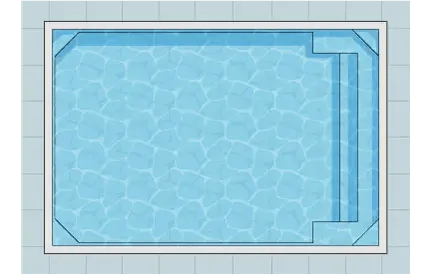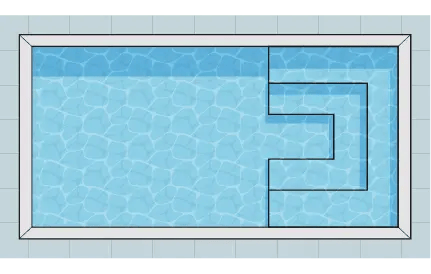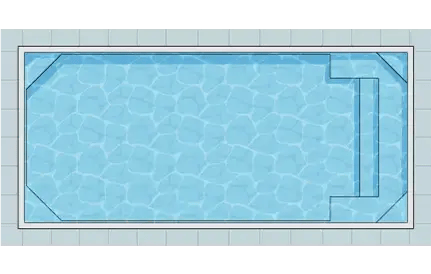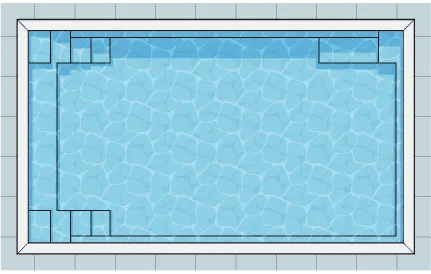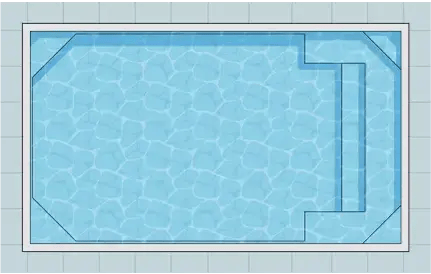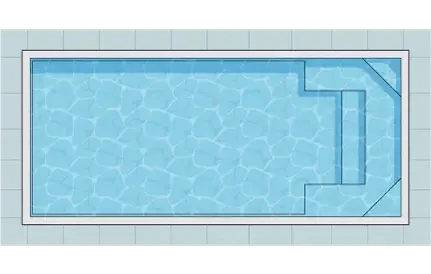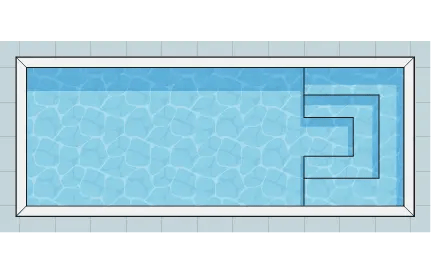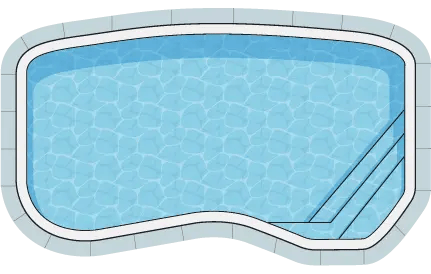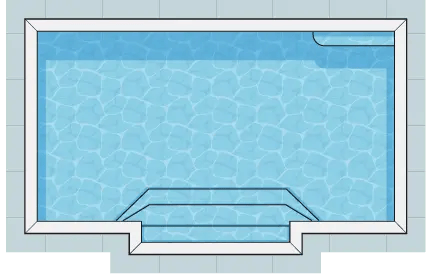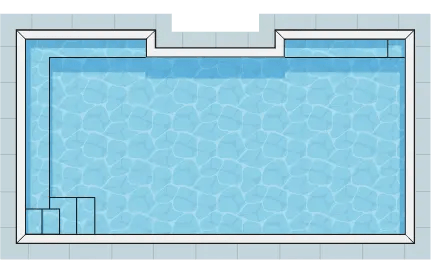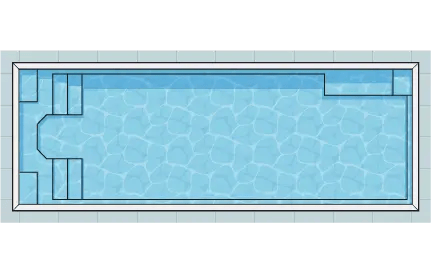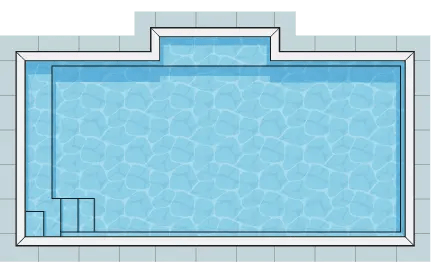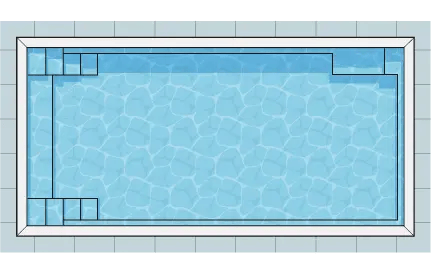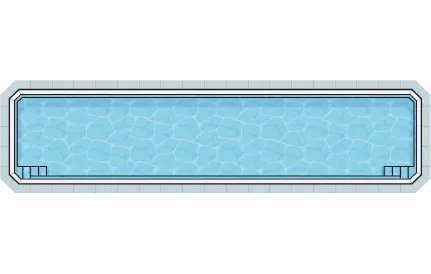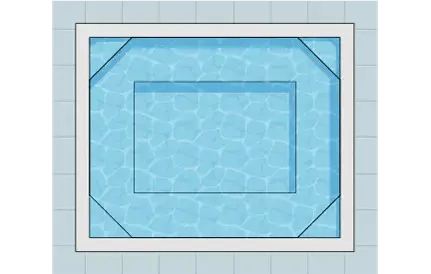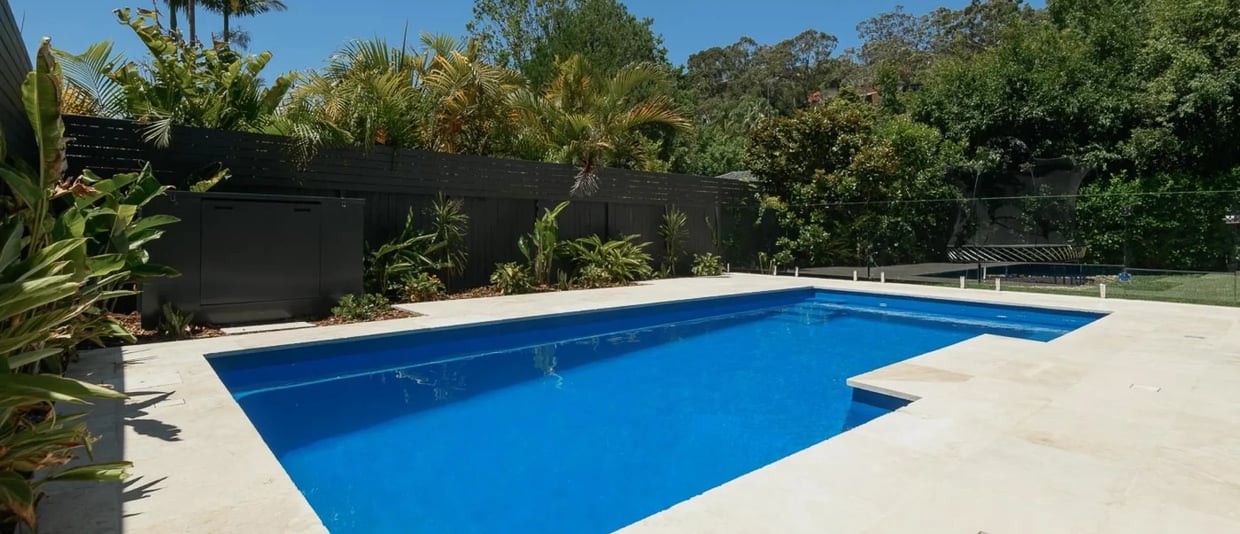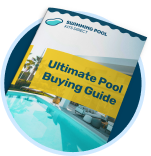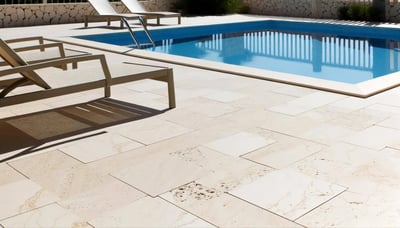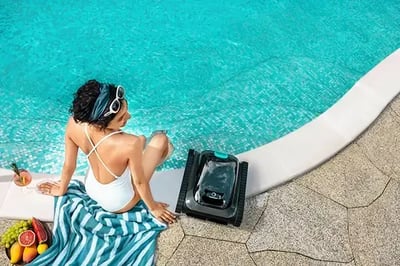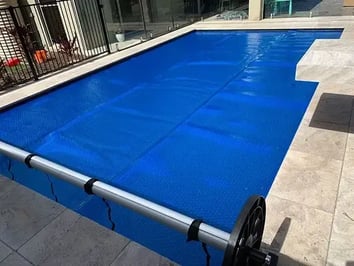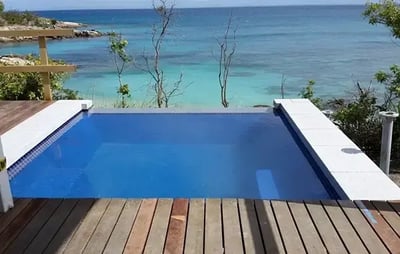
Listen to this article
Choosing the right swimming pool heater is essential to getting the most out of your pool.
Extending the amount of time you can swim, you’ll gain year-round enjoyment with careful planning and research.
In Australia, three main swimming pool heating options are available: solar power, gas, and electric.
To determine the most suitable heating solution for your pool, it is crucial to consider factors such as energy consumption, efficiency, and the upfront and running costs associated with each option.
In the following sections, we will delve into each type of pool heating in greater detail, exploring aspects ranging from installation to lifespan.
By understanding the specifics of each solution, you can make an informed decision about the best heating option for your pool.
Jump Straight to a Chapter
- Pool Heater Costs: What You Need to Know
- Solar Pool Heaters
- How Does a Solar Pool Heater Work?
- Cost-Effectiveness of a Solar Pool Heater
- Gas Pool Heaters
- Cost-Effectiveness of a Gas Pool Heater
- Electric Pool Heaters
- Cost-Effectiveness of a Pool Electric Heat Pump
- Choosing the Pool Heater Option That's Right for You
Solar Pool Heaters
The world's move toward green energy has made solar heating an increasingly popular choice amongst pool owners looking to warm up their pools for the winter season.
However, whilst it’s environmentally friendly, one catch is the need for abundant sunlight for these heaters to work effectively.
If you’ve got that, you can significantly extend your swimming season by harnessing the sun's power to heat. Let's take a look.
Pool Heaters At A Glance
Solar Heaters
Electric Heaters
Gas Heaters
How Does a Solar Pool Heater Work?
Simply put, pool solar heating works by utilising the sun's energy to heat the water in your pool. The system typically consists of the following components:
- Solar Collectors: Solar panels or thermal collectors make a solar heating system. These panels are usually mounted on the roof or ground near the pool. They are designed to absorb and transfer the sun's heat to the pool water.
- Pump: A circulation pump moves the pool water through the solar collectors. The pump ensures that the water flows from the pool to the collectors and back, facilitating the heat transfer.
- Flow Control Valve: A flow control valve helps regulate the water flow through the solar collectors. It ensures that the water is directed to the collectors when the sun is out and bypasses them when solar heating is unnecessary.
- Filter and Strainer Basket: The pool's existing filtration system removes debris and impurities from the water before it enters the solar collectors. It ensures that the system remains clean and efficient.
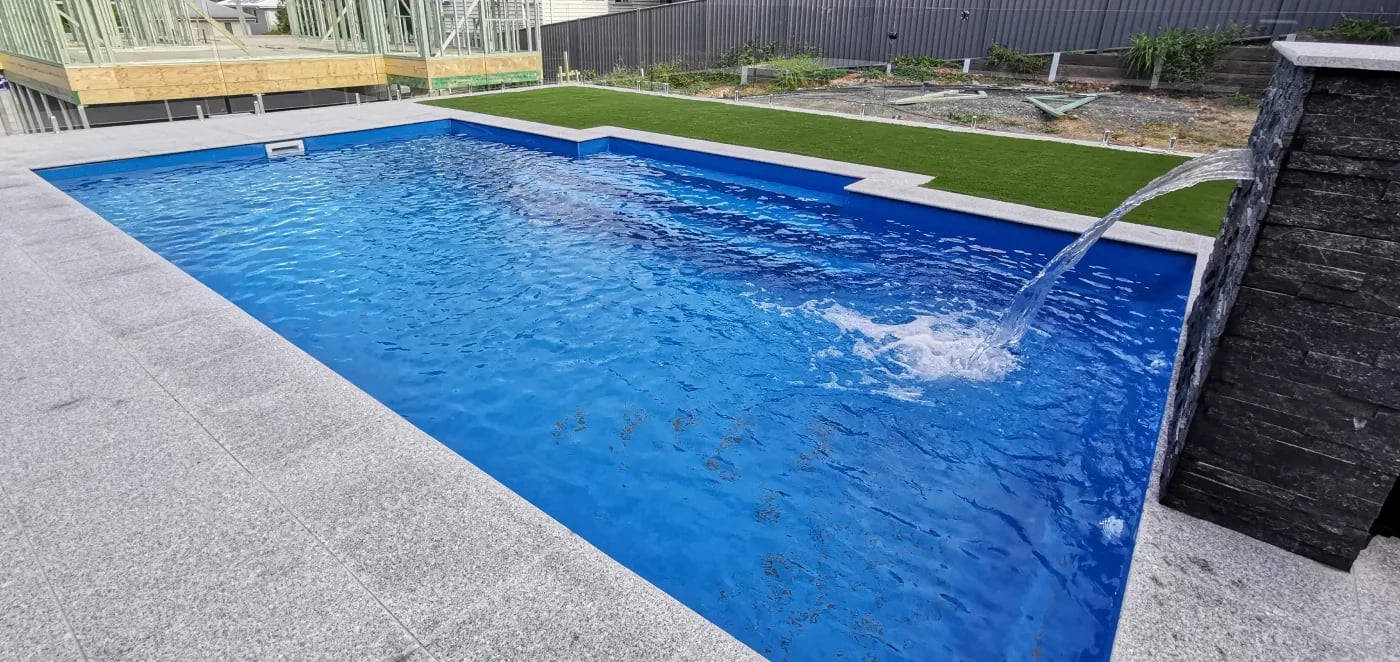
The above components fit into the following solar heating process:
- Water Circulation: When the pool's circulation system is activated, the water is drawn through the pool's skimmer or a dedicated suction line.
- Filtration: The water passes through the pool's filtration system, where it is cleaned, and any debris is removed.
- Solar: The filtered water is directed to the solar collectors. The sunlight heats the panels, and the water flowing through them absorbs this heat.
- Heat Transfer: As the water flows through the solar collectors, it absorbs the heat from the sun-warmed panels. This process raises the temperature of the water.
- Return to Pool: The heated water is then returned to the pool, which helps raise the pool water's overall temperature.
Cost-Effectiveness of a Solar Pool Heater
Solar pool heating can be a cost-effective option in the long run. However, the initial investment and savings can vary depending on location, system size, local energy costs, and usage patterns.
If you’re considering solar pool heaters, there are some valuable considerations to consider when it comes to cost-effectiveness:
Initial Investment
The upfront cost of installing a solar pool heating system can be higher than other heating options.
It includes the cost of solar collectors, installation, additional equipment, and any necessary modifications to the existing pool system.
However, it's important to note that the price can vary significantly depending on the pool's size and the installation's complexity.
Energy Savings
Solar pool heating utilises the sun's energy, which is free and renewable, to heat your pool.
By reducing or eliminating the need for conventional heating methods like gas or electric heaters, you can save significantly on energy costs over time.
The savings will depend on the local climate, system efficiency, pool size, and desired water temperature.
Payback Period
The payback period is the time it takes for the energy savings to offset the initial investment.
While it varies based on factors mentioned earlier, solar pool heating systems generally have a payback period of two to seven years.
After this point, the system can provide ongoing energy savings for the remainder of its lifespan, typically 10-20 years or more.
Maintenance and Operating Costs
Solar pool heaters require minimal maintenance compared to other heating methods.
Regular inspections, cleaning panels and occasional repairs may be necessary, but they are generally less frequent and costly.
Moreover, no fuel costs are associated with solar heating, reducing operating expenses.
Gas Pool Heaters
How Does a Gas Pool Heater Work?
A gas pool heater uses natural gas or propane to heat the water in your pool, operating in the following manner:
- Combustion Process: The gas pool heater contains a combustion chamber where the gas is burned. This is usually achieved using a burner, which is ignited by a pilot light or electronic ignition system.
- Heat Exchanger: The combustion process generates heat, which is transferred to the pool water through a heat exchanger. The heat exchanger is a coil or tube system that allows the pool water to circulate through it.
- Water Circulation: The pool's circulation system, including the pump, helps draw water from the pool and directs it into the heat exchanger. The pump ensures a continuous flow of water through the heater.
- Heating Process: As the pool water circulates through the heat exchanger, it is heated by the hot gases produced during combustion.
- Temperature Control: Gas pool heaters typically have a thermostat that allows you to set and maintain the desired water temperature. The thermostat monitors the pool water temperature and signals the heater to turn on or off to maintain the desired temperature level.
- Exhaust and Ventilation: The combustion process produces exhaust gases that must be safely vented outside. Gas pool heaters are equipped with a ventilation system to ensure the proper release of exhaust gases.
- Safety Features: Gas pool heaters are designed with various safety features, such as a pressure switch that shuts off the gas supply if the water flow is inadequate or a high-limit switch that prevents overheating.
Suppose you're going to opt for a gas pool heater. In that case, following proper installation guidelines, ensuring regular maintenance, and complying with safety regulations when using a gas pool heater are essential.
Additionally, it's worth considering the gas fuel cost and the environmental impact associated with the combustion process when deciding on a heating option for your pool.
Cost-Effectiveness of a Gas Pool Heater
The cost-effectiveness of a gas pool heater depends on various factors, including the cost of gas fuel, the efficiency of the heater, and the specific circumstances of your pool usage.
Here are some key considerations regarding the cost-effectiveness of a gas pool heater:
Upfront Cost
Gas pool heaters generally have a lower upfront cost than heating options like heat pumps or solar heaters. However, the exact price can vary based on the size and model of the heater.
Operating Costs
A gas pool heater's operating costs primarily depend on the gas fuel cost in your area. Gas prices can fluctuate, so it's essential to consider the long-term affordability of fuel.
Efficiency
Gas pool heaters can vary in efficiency ratings. Higher-efficiency models extract more heat from combustion, resulting in lower fuel consumption and reduced operating costs. When choosing a gas heater, consider the heater's efficiency rating to maximise cost savings.
Heating Speed
Gas pool heaters are known for their ability to heat the pool quickly. They can raise the water temperature faster than other heating options, which can be advantageous if you require rapid or on-demand heating.
Climate Considerations
Unlike solar heaters that rely on sunlight, gas heaters are unaffected by weather conditions. This means that gas pool heaters can provide consistent heating regardless of the climate or weather conditions, which may be advantageous in colder regions or during colder seasons.
Lifespan and Maintenance
Gas pool heaters generally have a lifespan of around 8 to 12 years. Proper maintenance and regular servicing are essential to ensure optimal performance and longevity. Routine maintenance may involve cleaning the burner, inspecting gas connections, and checking for any signs of wear or malfunction.
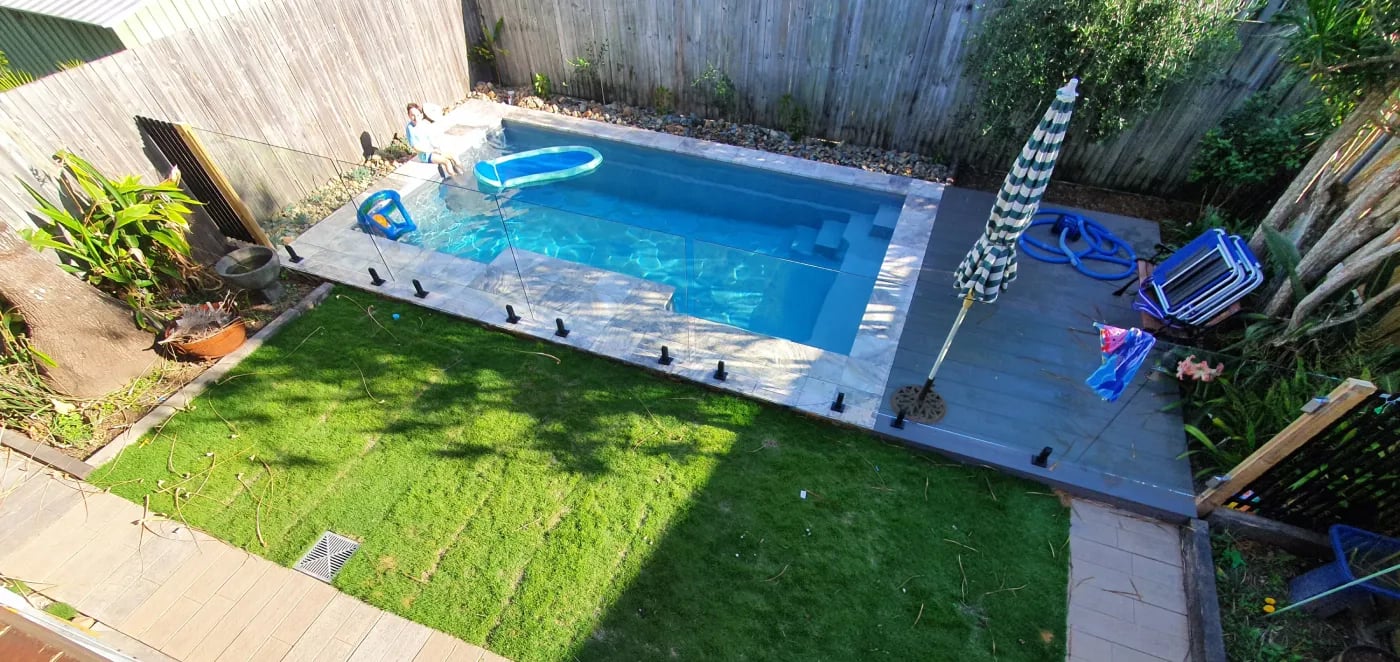
Electric Pool Heaters
Swimming pool electric heat pumps are an alternative to solar and gas pool heaters. In short, heat pumps operate by extracting heat from the air and using it to warm the pool water.
How Does a Pool Electric Heat Pump Work?
Here's a step-by-step explanation of how an electric heat pump can use electricity to transfer heat from the surrounding air and into your pool water.
- Evaporation: The heat pump's fan draws in warm air from the surrounding environment, which contains heat energy even at lower temperatures.
- Air Filter: The air passes through an air filter that removes dust, debris, or other particles to keep the heat pump running efficiently.
- Refrigerant: Inside the heat pump is a special fluid capable of capturing and transferring heat. The warm air from the environment passes over the evaporator coil, and the refrigerant absorbs the heat from the air.
- Compressor: The refrigerant, now carrying the captured heat, is compressed by the heat pump's compressor. Compression increases the temperature of the refrigerant, intensifying its heat energy.
- Heat Exchanger: The hot refrigerant moves to the heat exchanger, which is in contact with the pool water. The heat exchanger transfers the heat from the refrigerant to the pool water, raising its temperature.
- Expansion Valve: The refrigerant moves to an expansion valve after releasing heat to the pool water. The valve reduces the pressure on the refrigerant, causing it to cool down and return to its initial state.
- Repeat Cycle: The process continues as the heat pump draws in warm air, repeats the heat exchange with the refrigerant, and transfers additional heat to the pool water.
- Temperature Control: The heat pump has a thermostat that monitors the pool water temperature. When the desired temperature is reached, the heat pump will cycle off to maintain the set temperature and conserve energy. If the temperature drops, the heat pump will start again to continue heating the pool.
Cost-Effectiveness of a Pool Electric Heat Pump
The cost-effectiveness of a pool electric heat pump depends on several factors. Here are some key considerations regarding the cost-effectiveness of a pool electric heat pump:
Upfront Cost
Electric heat pumps for pools generally have a higher upfront cost than other heating options like gas heaters. The exact price can vary depending on the size and model of the heat pump, as well as installation requirements.
Operating Costs
Electric heat pumps are known for their energy efficiency, as they transfer heat from the surrounding air to the pool water rather than generating heat directly. However, they do require electricity to operate. The operating costs will depend on factors such as electricity rates in your area, the desired pool temperature, and usage patterns.
Energy Efficiency
Electric heat pumps are designed to be highly energy-efficient, making them an environmentally friendly choice. They can provide a high coefficient of performance (COP), which indicates the heat output with the electricity input. Look for models with a higher COP to maximise energy efficiency and cost savings.
Climate Considerations
Electric heat pumps rely on the heat in the surrounding air to warm the pool water. They work best in moderate to warm climates where air temperatures remain above freezing. Efficiency may be reduced in colder climates, and supplemental heating may be required during the coldest months.
Lifespan and Maintenance
Electric heat pumps typically have a lifespan of around 10 to 15 years, depending on the brand and maintenance. Regular maintenance, such as cleaning the air filters and ensuring proper airflow, is vital to maintain efficiency and prolong the heat pump's lifespan.
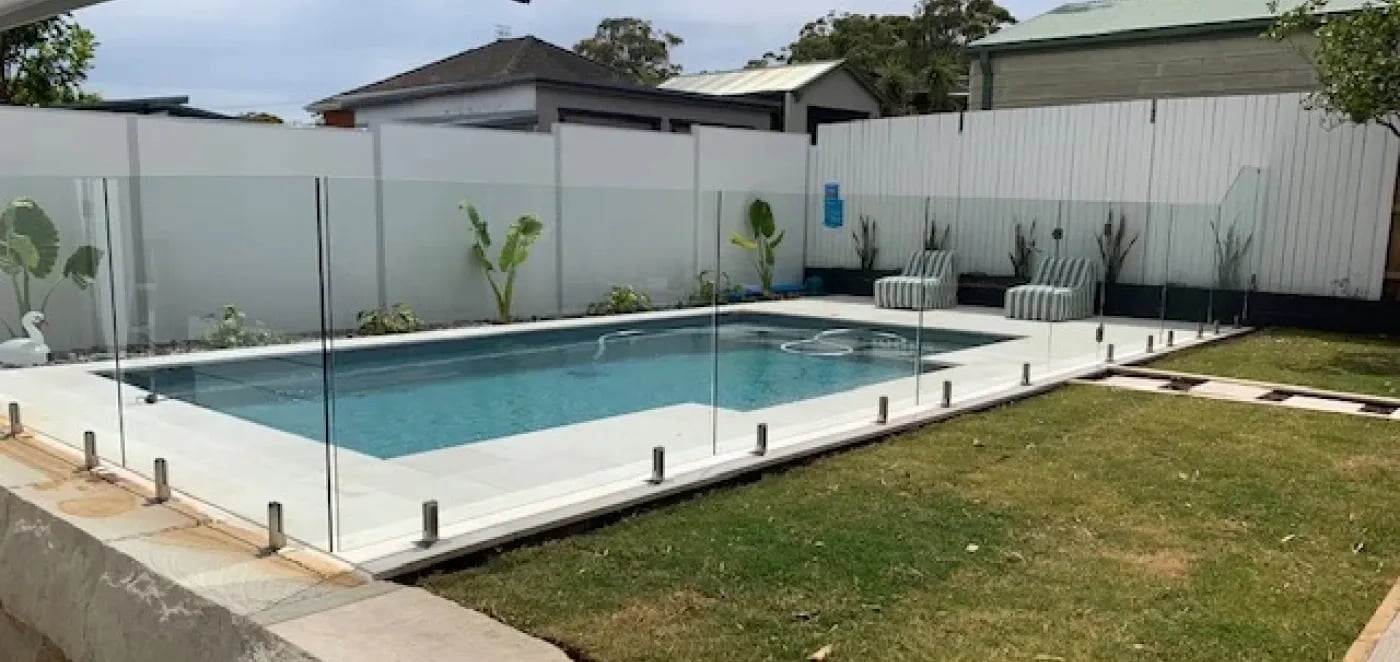
Choosing the Pool Heater Option That's Right for You
It's essential to consider the particular circumstances of your pool, climate, and energy costs when evaluating the best pool heating option.
Consulting with reputable solar contractors or professionals can better understand the potential savings and help you make an informed decision.
Whatever option you decide on, our expert team are there to help.
With 30 years of pool experience, we’re here to help you find the right heating solution and select the perfect pool.
Call us today at 1800 497 421––with Swimming Pool Kits Direct we'll have you swimming twenty-four-seven, 365 days a year.
Pool Heater Costs - Frequently Asked Questions
What factors influence the upfront cost of installing a pool heater?

The upfront cost of installing a pool heater is influenced by several factors.
These include the type and size of the heater, installation complexity, necessary equipment, and any modifications required to integrate the heater with existing pool systems.
Additionally, regional variations in labour and material costs, as well as specific site conditions, can impact the overall installation expenses.
Considering these factors comprehensively ensures a well-informed decision regarding the upfront investment in a pool heating system.
How can I estimate the energy consumption and running costs of different pool heating options?

Estimating the energy consumption and running costs of pool heating options involves considering several factors.
These include the type of heater, its size and efficiency, local energy prices, climate conditions, and pool usage patterns.
Additionally, manufacturers often provide efficiency ratings or energy usage estimates for their heaters, aiding in cost calculations.
By evaluating these variables in conjunction with personal preferences and budget constraints, one can estimate the ongoing operational expenses of various pool heating solutions accurately.
What maintenance is required for different types of pool heaters and how often?

Maintenance requirements for pool heaters vary depending on the type of heater:
Solar Pool Heaters: Solar panels should be inspected annually for debris or damage. Check for leaks, clean panels as needed, and ensure proper circulation. Pumps and valves may require occasional servicing.Gas Pool Heaters: Gas heaters should be inspected annually by a professional for leaks, corrosion, or damage. Clean burner ports and ensure proper ventilation. Regularly check gas connections and valves for safety.
Electric Heat Pumps: Clean or replace air filters monthly and inspect coils for debris. Annually check refrigerant levels, electrical connections, and fan motors. Ensure proper airflow and keep surrounding vegetation trimmed.
Regular maintenance helps ensure optimal performance and longevity for all types of pool heaters.
Can I install a pool heater myself or do I need to hire a professional?

While some pool heater installations may be DIY-friendly, hiring a professional is often recommended for safety and efficiency.
Gas heaters, in particular, involve complex connections and ventilation requirements that trained technicians best handle to prevent hazards like gas leaks or improper combustion.
Electric heat pumps and solar heaters may offer more DIY potential but still require careful installation to ensure proper function and avoid damage to equipment or property.
Consulting with a qualified installer can provide valuable guidance based on your specific heating system and installation requirements.
Where is the best place to buy a pool heater in Australia?

We highly recommend considering Swimming Pool Kits Direct for your pool heater needs in Australia.
With our reputation for quality products, expert advice, and exceptional customer service, we offer a diverse range of heaters to suit different requirements and budgets.
Our extensive industry experience enables us to provide valuable guidance and support throughout your selection process, ensuring you find the ideal heater for your swimming pool.
Additionally, our competitive prices, reliable warranties, and efficient delivery make us the trusted choice among Australian homeowners and professionals across the eastern states.







